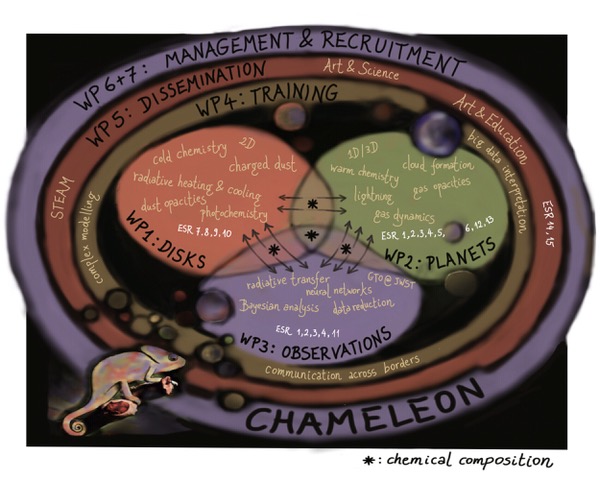WP 1: Modelling planet-forming disks
Understand the chemical composition of planet-forming disks
Develop the next generation of thermo-chemical disk models which we will use as Virtual Laboratories to explore the chemical evolution of circumstellar disks and how their physico-chemical state affects the process of planet formation. Educate students in complex numerical modelling and statistical analysis of modern astronomical data. Knowledge transfer from the planet to the disk community concerning the simulation of chemical processes in warm and dense environments, electrification and lightning.
WP 2: Modelling exoplanet atmospheres
Understand the chemical composition of exoplanet atmospheres
Advance understanding of the chemical composition of exoplanet atmospheres by including the effects of the host star’s variability, cloud formation, charge processes and lightning in state-of-the-art (exo)planet atmosphere models. Enable students to apply complex models as Virtual Laboratories for different objects, parameter spaces or test cases, for predicting observations and data analysis (WP3).
WP 3: Predicting Observations & Data Analysis
Provide the observational constraints for the chemical composition of disks and exoplanets
Apply novel statistical and machine learning algorithms to the data interpretation in conjunction with complex models. Compare the strengths and weaknesses of simplified models with the self-consistent forward models. Train students in advanced statistical methods and large astronomical databases.

